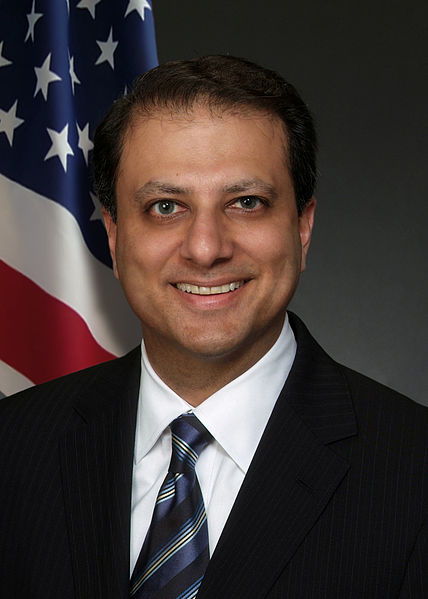The financial giant JPMorgan Chase will pay $2.6 billion to settle allegations it failed to disclose suspicions of fraud in what turned out to be a massive Ponzi scheme by Bernie Madoff. Senior executives at JPMorgan Chase had serious doubts about Madoff’s investment business at least 18 months before it collapsed. Despite repeated suspicions, the bank never alerted authorities and allowed Madoff to move billions of investors’ cash in and out of his Chase bank accounts right up until the day of his arrest in December 2008. New York District Attorney Preet Bharara unveiled the settlement.
Preet Bharara: “The BSA is a law that requires financial institutions — as institutions — to establish and maintain effective anti-money-laundering compliance programs and to know their customers. It is not a tip; it is not a suggestion. It is a legal requirement, enforceable through criminal sanction. Today’s charges have been filed because, in this regard, JPMorgan, as an institution, failed — and failed miserably. One reason, among others, that Madoff was able to get away with his crime for so long was that JPMorgan had an inadequate and ineffective anti-money-laundering program
Of the $2.6 billion fine, $1.7 billion will go to Madoff’s victims, who lost an estimated $18 billion. With the Madoff penalty, JPMorgan has now paid some $20 billion to resolve government probes over the past 12 months. It is the latest settlement to come out of a series of deferred prosecution agreements that have allowed major corporations to escape criminal charges. In a statement, the watchdog group Public Citizen criticized the Justice Department, saying: “This marks the latest example of a predilection toward settling through the use of deferred prosecution agreements, instead of issuing indictments. It also underscores the continuing, and perhaps growing, problem of ‘too big to jail.'”










